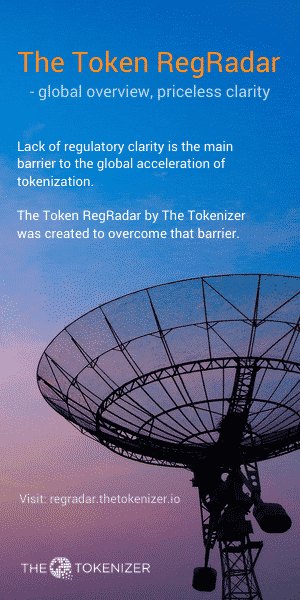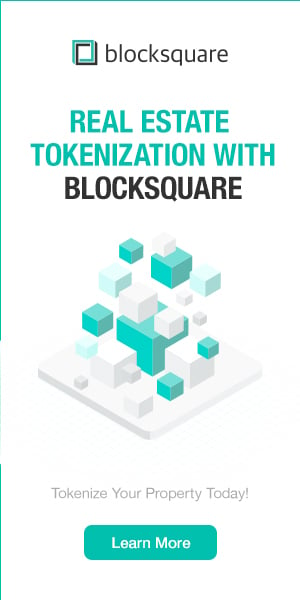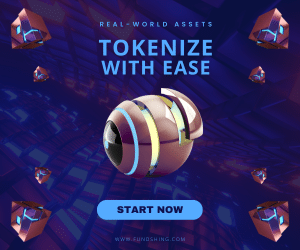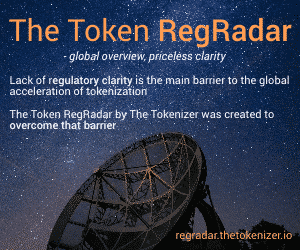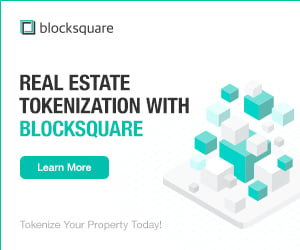From a regulatory perspective, the barriers to rapid and relatively painless deployment of security tokens to anyone but professional investors and high-net-worth individuals seems to be lower in Europe than in, for example, the United States.
In the U.S., investing in security tokens is in practice a no-go for smaller, non-accredited retail investors. In Europe, new EU rules provide a more liberal regulatory profile that makes it easier to participate in certain kinds of security offerings, where the sale of securities is not a result of an IPO based on an approved prospectus.
The Tokenizer has asked CEO Zoe Adamovicz and Legal Architect André Eggert from the German company Neufund to help clarify the current status of options and obstacles in the European landscape of security tokens.
Neufund is headquartered in Berlin and is one of Europe’s leading security token issuance companies. Neufund’s idea is to bring “ownership back to the people,” and not only to the 2%, 5% or 7% of the wealthiest people who can comply with the requirements for investor accreditation. While such a mission would currently be a losing battle in the U.S., Zoe Adamovicz explains that the European legal landscape is different and offers some openings in several European jurisdictions that makes it possible – under certain conditions – to move ahead with security token offerings for broader groups of investors.
“This is a political topic rather than anything else, right? Law is law, but there are two aspects to be considered. One is that the current security law is the result of the aftermath of 2008 and the global financial crisis. The reaction from politicians and regulators back then was to regulate harder, which meant that the number of people who could invest was significantly reduced. It was probably a good decision at the time, but it just doesn’t make that much sense anymore.”
“So, that’s one thing. However, these strict regulations in the U.S., Europe and elsewhere that were originally designed to protect the investors did more than just that. They also protected existing financial service monopolies. So right now, around the world, different countries’ attitudes towards blockchain seem to correlate with the strength of their financial industry: The stronger the financial services industry, the stronger the opposition to blockchain.”
Hence, Zoe Adamovicz believes there is a connection, for instance, between the massive strength of Wall Street and the American financial services sector and the very strict American securities laws and harsh crypto regulation. These stringent regulations exist despite the fact that the U.S. has a burgeoning blockchain industry based in the Silicon Valley. When it comes to Europe, things are moving in a different and more positive direction, according to Zoe Adamovics:
“I’m not saying that it’s super easy in Europe and that everything is rosy here. It’s not. We have Frankfurt; we have London, we have big European banks. However, we also have a rather progressive European Commission, and we jurisdictions that display an open mind toward blockchain and crypto, such as Estonia, Lichtenstein, Poland, Germany, to some extent Malta, and, of course, France. Also, we have a lot of small banks, who are interested in new technologies. So, it is somewhat easier to forge the path forward here in Europe.”
The progressive European Commission
Neufund’s Legal Architect, André Eggert, also points at the significance of the EU Commission’s general positive approach towards both new technologies – like blockchain – and the European SME’s and startups.
“The Commission is for sure in front when it comes to opening the capital market. Also, I think the Commission is on a mission to limit the gatekeeper positions of the existing financial services industry. I think the Commission is actively pushing the blockchain agenda forward in a positive way, but I believe it is also still trying to find its position. So, if you look at it from the regulator perspective, then this is not an easy mission. However, from what I see and hear the European Commission is much more open than regulators in the United States.”
The Commission’s ongoing mission of harmonising the European market by opening up and creating a level playing field of competition is mirrored in recent legislation, including the new Prospectus Regulation (EU)2017/1129, which goes into effect in all EU countries on 21 July 2019.
“Small and mid-sized companies have had
difficulties getting access to the capital market, but with the new prospectus
regulation, the European Commission is trying to open up the market. This is of
course also helping securities offered on a blockchain, because if you do not
need a prospectus, the entrance barriers are lowered. So that’s a good thing
for smaller investment rounds.”

What André Eggert is referring to here is an exemption in the new prospectus regulation saying that in the case of investment rounds under a certain threshold a prospectus is not required. However, there are two parts of this exemption in the regulation. The first part concerns “offers of securities to the public with a total consideration in the Union of less than €1 million.” And because of the considerable costs of producing a prospectus, “the obligation to draw up a prospectus under this Regulation should not apply to offers of such small scale.”
The second part of the exemption applies to investment rounds between €1 million and €8 million, and in the explanatory remarks of the regulation says: “Furthermore, in view of the varying sizes of financial markets across the Union, it is appropriate to give Member States the option of exempting offers of securities to the public not exceeding €8 million from the obligation to publish a prospectus as provided for in this Regulation.”
The relevant European legislation here
are The Financial Instruments Directive (2014/65/EU), also known as MiFID II, and the new Prospectus Regulation (EU)2017/1129, which is applying in all EU countries from 21 July2019, and repealing Directive 2003/71/EC.
Paving the way for ETOs
What Neufund does on its platform is assist companies that want to run an Equity Token Offering (ETO). Many of these companies can benefit from the exemptions in the new Prospectus Regulation. Zoe Adamovicz explains:
“At a general level, there are different regulations for different types of fundraising; in principle, it is possible to do both public and private ETOs, and the companies can choose the type they like. For example, there are certain restrictions on the size of fundraising. If you want to do a smaller fundraising, up to a couple of million euro, you don’t need to deliver as much documentation to regulators. Sometimes you don’t need to provide documentation at all, or it’s limited to a few pages. And then you can invite retail investors as well.”
“If you, in the other extreme, want to do a massive fundraising round, let’s say for a couple of hundred million euro, then there is a lot more documentation required – which is of course fully justified since the risk for the investors is bigger. One of the things Neufund is doing is helping companies comply with these documentation requirements. So, that’s how it works in Europe. It’s different than in the US because we don’t need to have accreditation, for instance.”
The unrealistic scenario of IPOing
On the question of whether a full-blown IPO at one of the traditional stock exchanges like the Deutsche Börse would be a more secure and more prosperous path for some of the ETO candidates, both André Eggert and Zoe Adamovicz say that in most cases they do not see this as a realistic option. André Eggert says:
“The point is, that if you go through the existing stock exchanges, then all the effort you need to made, and all the support you need to have, makes it very difficult, very expensive and very inefficient for you to fundraise. On a traditional exchange like Deutsche Börse, it’s only possible if you want to raise at least €50 million.”
Zoe Adamovicz agrees, and she explains that these inseparable IPO barriers for young companies is one of the main reasons why the potential for ETOs is vast:
“We often focus on early-stage companies looking for €1-3 million. They will now be able to raise funds more easily because of the new prospectus regulation. Besides, we help companies that seek growth financing in the area of, for instance, €2 million. Helping these companies is a sweet spot for Neufund because they already have a working business, but there is still a long way to go before they can do an IPO.”
The Brille24 case
The German eye tech company Brille24 is an example of a company using the Neufund platform. Brille 24 has already received an A round financing from a professional venture capital investment fund. They have an operating business, and now they want to grow the company further with new AI technology and access to new markets. To do so they do not need another VC fund or smart money. Instead, they need to leverage what they have already achieved, which make them an ideal candidate for Neufund.
More Articles:
Towards a European token economy – driven by the EU Commission!
You Might also Like










